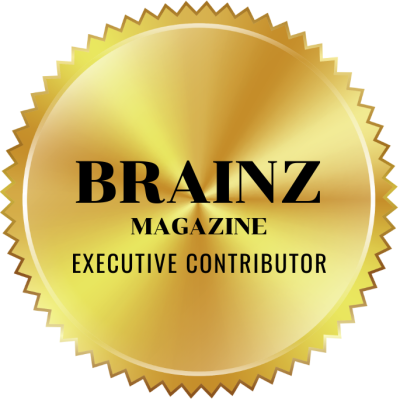Welcome to another edition of Impactful Teamwork! Today, I want to explore the seismic shifts transforming the corporate world in 2025. As we face a landscape of unprecedented disruption—social, economic, and environmental—leaders are being challenged to rethink the very fabric of how businesses operate.
In this podcast episode I discuss five major trends reshaping the corporate world, along with actionable strategies for leaders to adapt, thrive, and inspire their teams in this era of reinvention.
The End of Corporate Advantage
Gone are the days when being a large corporation guaranteed success. The old playbook of leveraging stable markets and loyal customers has become obsolete. Today, the competitive advantage lies in agility, speed, and innovation. Businesses that fail to adapt are quickly losing ground. In fact, the Accenture 2024 Pulse Change Index found a staggering 138% increase in the rate of change since 2019, with nearly 23% of organizations reinventing themselves annually.
What Does This Mean for Leaders?
Leaders must shift from defensive strategies to proactive reinvention. Businesses need to operate with a mindset of continuous adaptation, creating rolling forecasts instead of rigid three-to-five-year plans. Building resilience and agility into every layer of the organization is essential. Leaders who embrace adaptability and innovation will thrive, while those clinging to outdated strategies risk becoming the next Blockbuster or Kodak.
The Rise of Corporate Sabotage
Another alarming trend is the growing number of disengaged employees actively sabotaging their workplaces. Gallup reports that 15% of the global workforce is actively disengaged, undermining productivity, morale, and innovation. For perspective, that’s over 525 million people worldwide working against their organisations.
What’s Driving Disengagement?
Burnout, rigid work structures, and a lack of purpose are fuelling this disengagement. When team members feel undervalued and powerless, their dissatisfaction can lead to active sabotage.
The Leadership Imperative
The solution lies in creating an inclusive, purpose-driven culture. Leaders must rebuild trust, foster open communication, and align actions with values. When team members feel valued and see their contributions making a difference, engagement improves. Addressing the root causes of disengagement isn’t optional; it’s vital for sustaining performance and a healthy workplace culture.
The Death of the Five-Day Work Week
The traditional Monday-to-Friday grind is fading fast. Companies like Unilever and Microsoft Japan are pioneering four-day workweeks with remarkable results: happier, more productive employees. Flexible working arrangements are no longer a luxury—they’re becoming the norm.
Balancing Flexibility and Business Needs
Leaders must think creatively about time and productivity. Whether it’s flexible hours or hybrid work models, accommodating diverse needs enables teams to perform at their best. This doesn’t mean sacrificing business priorities; rather, it’s about finding win-win solutions that support both individual well-being and organisational goals.
Swarming Leadership: The Power of Collaboration
The old command-and-control leadership model is being replaced by something far more dynamic: swarming leadership. Inspired by nature—like bees working in a hive—swarming leadership emphasizes collaboration across departments, generations, and cognitive backgrounds to solve problems quickly and efficiently.
How to Cultivate Swarming Leadership
For swarming leadership to thrive, organisations need flat hierarchies, cross-functional collaboration, and a culture of trust. Leaders must be willing to relinquish some control and empower their teams to adapt roles dynamically. In doing so, businesses can become more like living organisms—flexible, resilient, and responsive to change.
Reinvention Becomes Mainstream
Reinvention is no longer a buzzword; it’s a necessity. Continuous reinvention has been named the top priority for CEOs by PWC’s Global CEO Survey for two consecutive years. Whether through a Chief Reinvention Officer or cross-functional initiatives, companies that embed reinvention into their DNA are better equipped to navigate uncertainty.
Reinvention as a Strategic Advantage
Reinvention isn’t about discarding the old but building on it. Leaders must find ways to leverage past successes while staying ahead of future trends. Reinvention is now the ultimate strategy for thriving in a volatile world.
Adapting to 2025 and Beyond
These five trends—corporate agility, disengagement, flexible work, swarming leadership, and reinvention—highlight the dramatic shifts underway in the corporate landscape. The question for leaders is clear: will you adapt and lead the change, or risk being left behind?
Practical Steps for Leaders
- Empower Your Team: Foster an environment where employees feel valued, heard, and inspired to contribute.
- Prioritise Agility: Build systems and strategies that allow your organisation to pivot quickly.
- Reimagine Time: Explore flexible working arrangements that meet the needs of both team members and the business.
- Embrace Collaboration: Break down silos and encourage cross-functional problem-solving.
- Commit to Reinvention: Embed continuous improvement into your company’s culture and operations.
As we move into 2025, the playbook for business success is being rewritten. Leaders who embrace these trends and invest in their people will not only survive but thrive in this new era.
How is your organisation preparing for the challenges and opportunities of 2025? I’d love to hear your thoughts and strategies. Together, let’s navigate this transformative time and create a future where businesses and their teams can flourish.
Show Notes:
Here are the highlights from this episode:
00:00 Introduction: Navigating Turbulent Times
02:10 The End of Corporate Advantage
07:50 Corporate Sabotage on the Rise
10:49 The Death of the Five-Day Work Week
15:04 The Rise of Swarming Leadership
18:10 Reinvention Becomes Mainstream
19:52 Conclusion: Adapting to 2025 and Beyond





